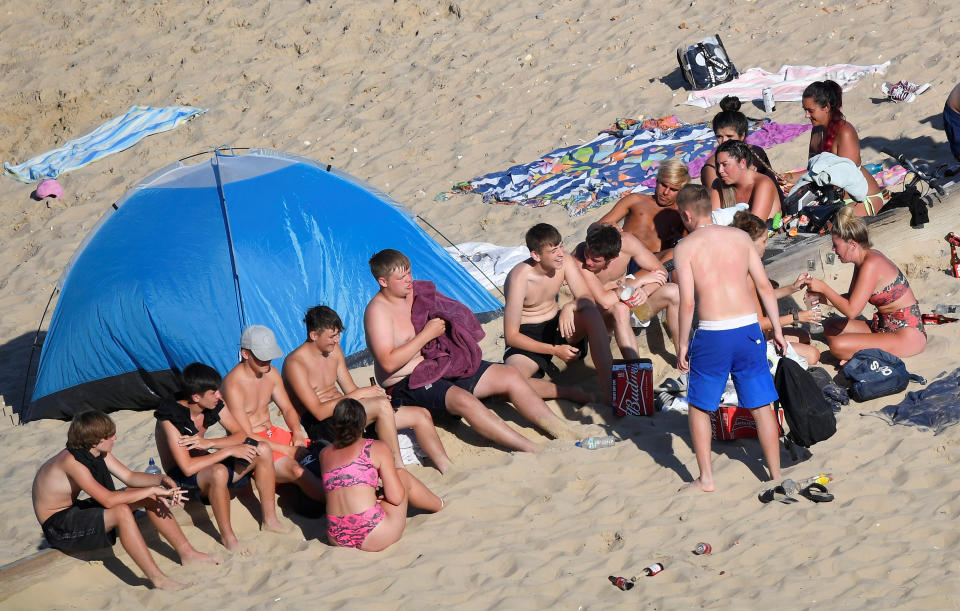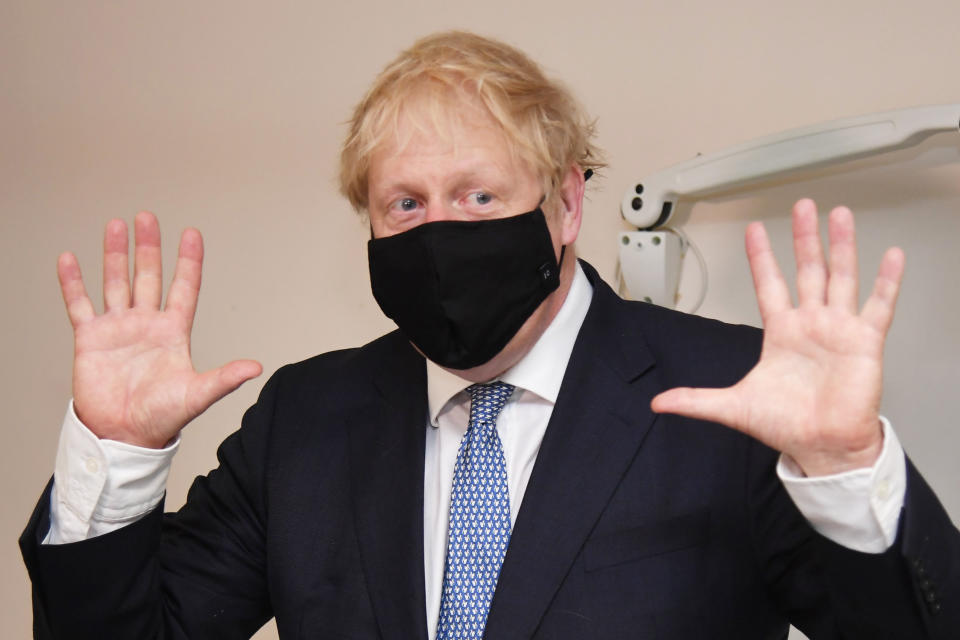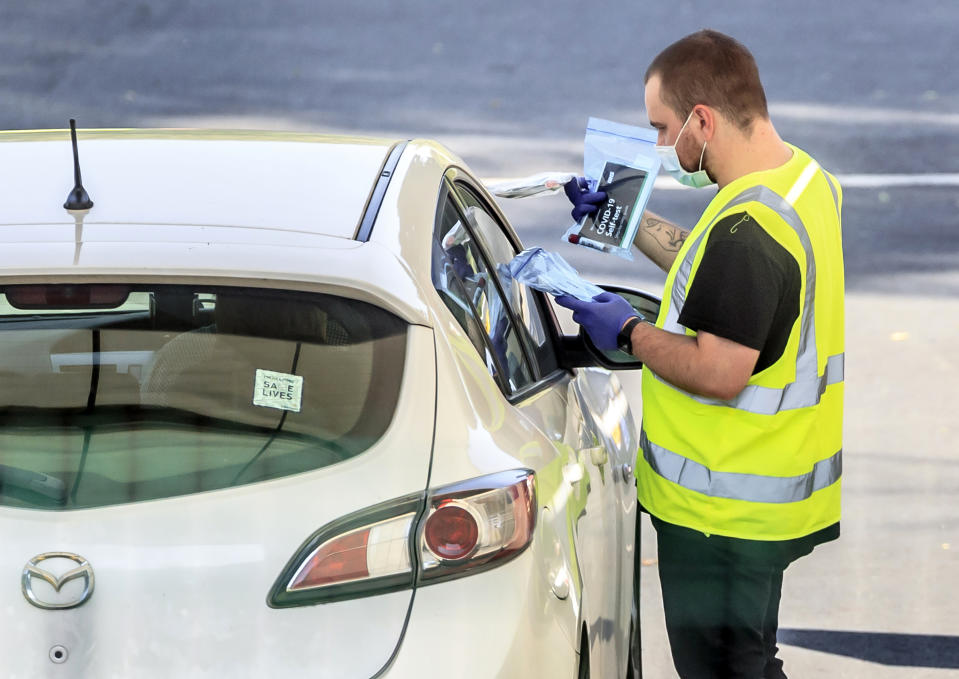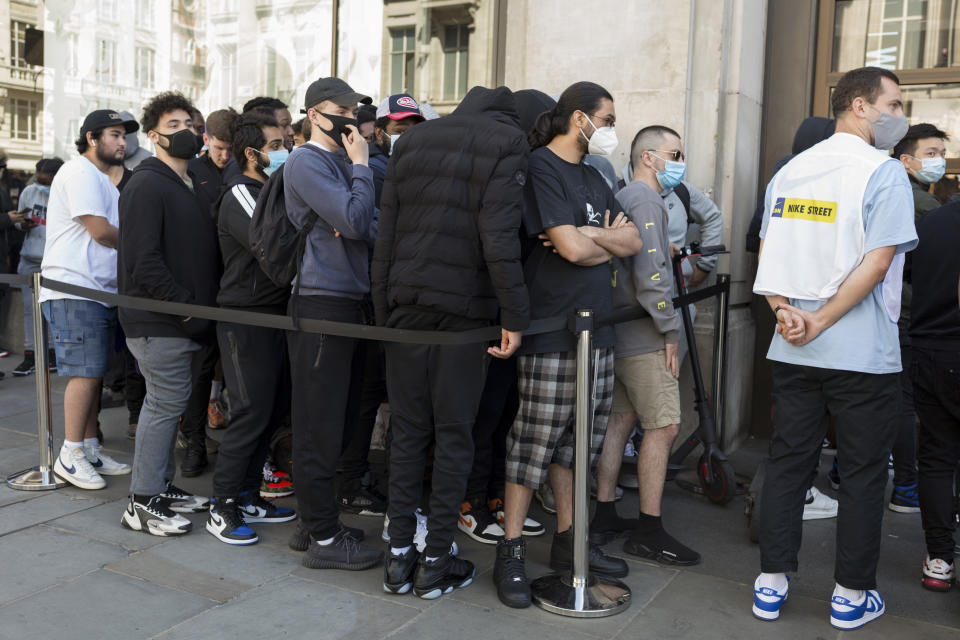Nearly half of young people 'would flout rules in second lockdown'

Almost half of people aged 25 to 34 have said that they would flout rules if a second coronavirus lockdown was imposed.
A poll of more than 2,000 UK adults revealed the data, published Friday.
The research also found one in five people believe they have had COVID-19 despite not having a positive test.
Two thirds of those who took part said they believe the UK will enter a second full lockdown, despite Boris Johnson putting precautions in place to avoid the scenario.
The data was released on Friday as many towns and cities in the north of England awaited news on whether they would face local lockdowns being imposed by the weekend.

When asked if they would follow the rules in the event of a second lockdown, respondents aged between 25 and 34 were most willing to say they would ignore official guidelines if that happened, with 47% confessing that they would flout the law.
Some 39% of those aged 18 to 24 said they would not closely follow the lockdown measures, while only 23% of those aged 65 and over gave the same answer.
The survey of 2,000 adults, conducted in July, found NHS swab tests for coronavirus were believed to be the most trustworthy but 44% of people said they were unsure about their reliability.
Private rapid-result antibody tests were the least trusted of all the testing options.
Dr Sam Rodgers, medical director of healthcare blood testing company Medichecks, which commissioned the study, said the data showed people were “confused”.

“Worryingly, people are drawing their own conclusions of whether they’ve had the virus and are behaving accordingly,” Dr Rodgers said.
Of the thousands of COVID-19 antibody tests carried out by Medichecks, 85% have received negative results.
Dr Rodgers said “many people” believed they had been exposed to the virus but did not have detectable antibodies.
The survey found only 8% of people thought that having coronavirus delivered total immunity.
However, 60% of respondents told the poll that it meant people had a lower chance of getting the virus again or infecting others.

“If people aren’t sure but suspect they have had Covid-19, there is a risk that they may behave differently,” Dr Rodgers said.
“This could manifest as not washing hands regularly, not adhering to social distance guidelines, and these are actions that will risk a second peak and ultimately cost lives.”
Only 8% of those polled had COVID-19 confirmed with a positive test.
Britain has so far seen 46,413 deaths due to coronavirus, and has recorded more than 308,000 cases since the outbreak began.
Coronavirus: what happened today
Click here to sign up to the latest news, advice and information with our daily Catch-up newsletter


